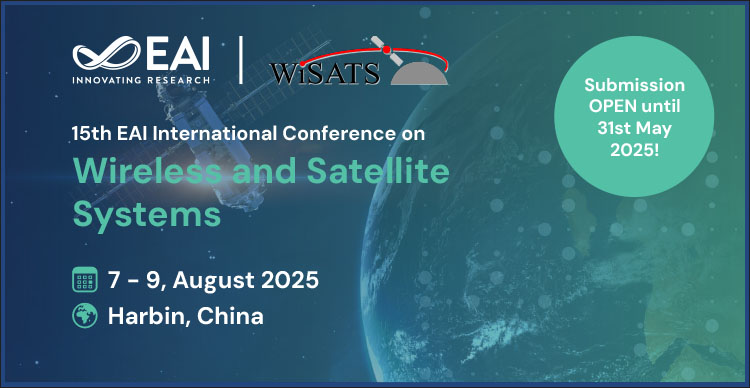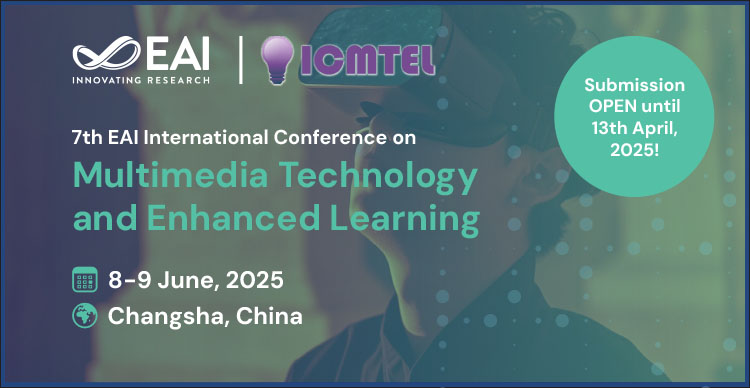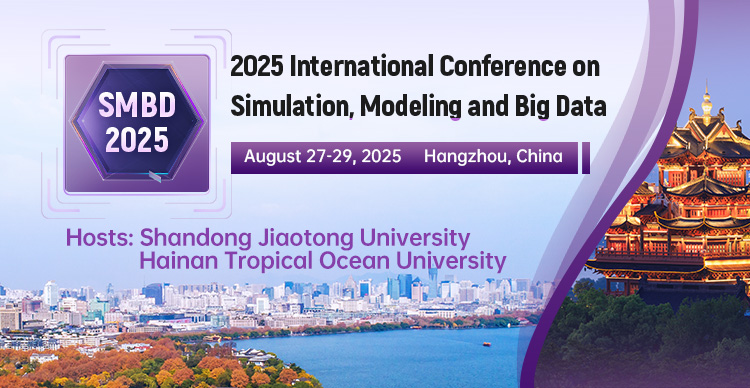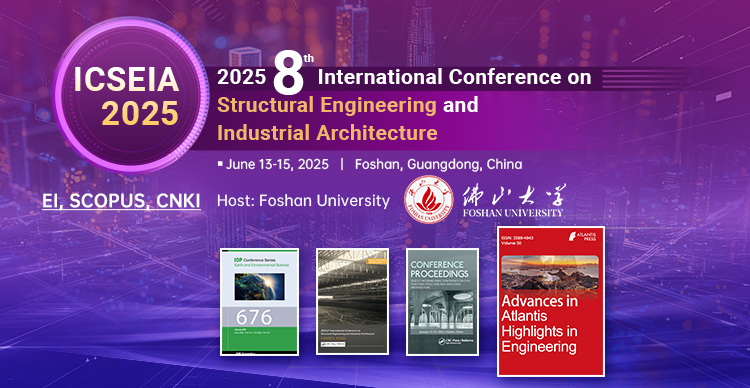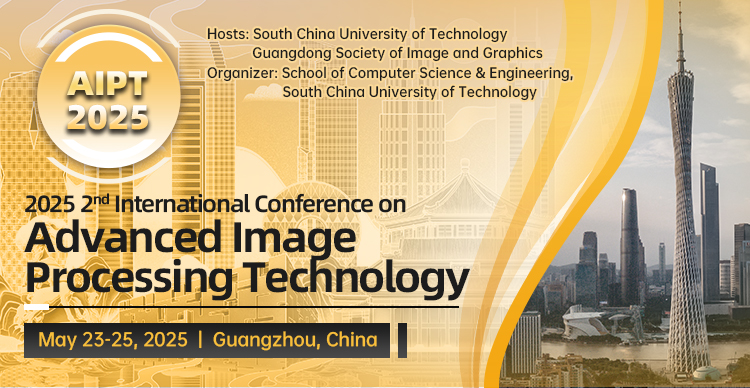2022 3rd International Conference on Computer Vision, Image and Deep Learning
(CVIDL 2022)

May 20-22, 2022 China·Changchun

Conference
Information:
Website: www.cvidl.org
Conference Date:May
20-22, 2022
Venue:Changchun, China
Indexing:EI/Scopus/SCI
2022 3rd International Conference on Computer
Vision, Image and Deep Learning (CVIDL 2022) will be held on May 20-22, 2022 in
Changchun, China. CVIDL 2022 is to bring together innovative academics and
industrial experts in the field of computer vision, image and deep learning to
a common forum. The primary goal of the conference is to promote research and
developmental activities in computer vision, image and deep learning and
another goal is to promote scientific information interchange between
researchers, developers, engineers, students, and practitioners working all
around the world. The conference will be held every year to make it an ideal
platform for people to share views and experiences in computer vision, image
and deep learning and related areas.
Organizer

Changchun University of Science and Technology, founded by the Chinese Academy of Sciences in 1958, is the first higher education institution in new China to train optical researchers. After more than 60 years of development, the school has now become a key university with distinctive optoelectronic characteristics and national defense features in Jilin Province, and enjoying the reputation of “cradle of optical talents in China”. Daheng Wang, the founder of “Two Bombs, One Satellite”, was a founding academician of the Changchun Institute of Optics and Fine Mechanics, and served as its first president. He is also considered the founder of Changchun University of Science and Technology, a spinoff of the institute. 16 academicians including Zutong Gong (a founder of China’s optical glass industry), Zhijiang Wang (a developer of China’s first laser), and Mingqiu Xue (a developer of China’s first high-precision theodolite), have taught or studied in this university, which has fostered a culture of Discipline and Practicality.

Academic Exchange Information Centre, also
known as AEIC, is a well-developed platform for academic exchanges founded
jointly by universities, research institutes and enterprises worldwide.
Supported by professionals and researchers from across the globe, AEIC strives
to promote sharing of academic information, boost research cooperation, explore
hot social topics and encourage science popularization initiatives. Dedicated
to “providing professional and devoting service” and built on the core values
of “professionalism, devotion and dedication”, AEIC seeks to provide more
opportunities of academic exchange. We provide publication services for authors
from academic conferences indexed by EI/CPCI so that their manuscripts can be
widely cited. We also recommend quality research manuscripts for publication on
SCI and SSCI journals.
Committee
General
Conference Chairman

President Huamin Yang
Yang is a
professor, doctoral supervisor, the current Deputy Secretary of the Party
Committee and President of Changchun
University of Science and Technology (CUST). He graduated from Dalian
University of Technology in 1985. He was promoted to a professor in 1999, and
became a doctoral supervisor in 2001.
Currently he
serves as the Director of the Provincial Education Informatization Expert
Advisory Committee, Head of the Provincial Manufacturing Informatization Expert
Group, President of Jilin Society for Robots, Vice President of Jilin Computer
Federation, Vice President of Jilin Society of Image and Graphics, and Vice
Chairman of China Computer Federation Changchun Branch.

Feng Wu
Feng Wu, male, is
a professor and Ph.D. advisor in the Department of Electrical Engineering and
Information Science at the University of Science and Technology of China, and
an IEEE Fellow. Prior to joining the University of Science and Technology of China,
He was a Research Fellow, Principal Researcher and Principal Researcher at
Microsoft Research Asia. His main research interests include video coding and
communication, multimedia content analysis, computer vision, etc. He has
published 44 papers in IEEE TCSVT, IEEE TIP and other IEEE journals, and 12
papers in MOBICOM, CVPR and other international conferences recognized by China
Computer Federation as Class-A level. He also won the Best Journal Paper Award
in IEEE TCSVT 2009 and the Best Paper Award in PCM 2008 and VCIP 2007. He also
serves as an editor-in-chief of IEEE TCSVT and IEEE TMM, and chair of the
program committees of the international conferences IEEE MMSP 2011, IEEEVCIP
2010 and PCM 2009.
Technical
Program Committee Chair
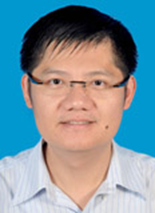
Yi Chang
Prof. Chang is the
Dean of the School of Artificial Intelligence at Jilin University, the 13th
National Distinguished Fellow, Distinguished Scientist of the Association for
Computing Machinery (ACM), and Fellow of the British Computer Society (BCS). He
was the Vice President of Futurewei in the U.S. and
the Director of Yahoo! Research Laboratory. He received the B.S. degree from
the School of Computer Science, Jilin University, the M.S. degree from both the
Institute of Computing Technology of Chinese Academy of Sciences and Carnegie
Mellon University, and the Ph.D. degree from the University of Southern
California (USC) from 2001 to 2016, respectively.

Lihua Zhang
Lihua Zhang serves as the Standing Vice
President of the Institute of AI and Robotics, Fudan University, Deputy
Director of the Engineering Research Center of AI and Robotics, the Ministry of
Education and Director of the Engineering Research Center of AI and Unmanned
Systems in Jilin Province.
Publication
Chair

Zhengang Jiang
Zhengang Jiang, male, doctoral advisor, is currently
the Vice Dean of the College of Computer Science and Technology of Changchun
University of Science and Technology. In 1997, he graduated from Changchun Institute of Optics and Mechanics
with a degree in computer science and stayed there for teaching. He served as
the director of the Network Management Center, the deputy director and then the
vice president of the Department of Computer Science. In 2013, he became the
executive director and deputy secretary general of Jilin Computer Federation.

Qi Li
Qi Li, male, is a
professor and doctoral supervisor in the School of Computer Science and
Technology of Changchun University of Technology. In 2000, he graduated from
Changchun Institute of Optics and Fine Mechanics, majoring in computer and
application, and stayed in school to teach in the same year. In 2005, he was
sent to Japan on a study abroad program and received his Ph.D. in engineering
from Okayama National University in March 2010. His was awarded the Outstanding
Doctoral Dissertation Award by Okayama University, Japan. In 2010, he returned
to China and set up Brain Informatics Research Laboratory, mainly engaging in
research on brain informatics and smart information processing.

Chunyi Chen
Chunyi Chen, male, is a professor and doctoral
supervisor in the School of Computer Science and Technology of Changchun
University of Science and Technology (CUST). In July 2003, he graduated from
CUST and got the first place in the postgraduate course in computer science,
and stayed there to teach after his graduation in the same year. He won the
third prize of the 9th Young Teachers’ Lecture Competition held by CUST.

Xin Zhang
Xin Zhang graduated from Harbin
Institute of Technology (HIT) in 2006. He received his master’s degree jointly
trained by HIT and France in 2009 and his Ph.D. degree in 2013. Zhang had been
involved in Collaborative Communication Driven Decision Management in
Non-hierarchical Supply Chains of the Electronic Industry, also known as the
CONVERGE project.
CALL FOR
PAPER
The topics of interest for submission include, but are not limited to:
Vision and Image technologies | DL Technologies | DL Applications |
Image-based computer graphics computational vision theory Image Analysis
of the video Graphics modeling Image processing Image acquisition Image Segmentation Medical image processing Human-Computer Interaction Three-dimensional and structure Virtualized Storage Visualization of Big data Principle of virtualization 3-D and Surface Reconstruction Motion Detection Machine vision Data Mining Techniques Face Recognition | Image-based computer graphics computational vision theory Image Analysis
of the video Graphics modeling Image processing Image acquisition Image Segmentation Medical image processing Human-Computer Interaction Three-dimensional and structure Virtualized Storage Visualization of Big data Principle of virtualization 3-D and Surface Reconstruction Motion Detection Machine vision Data Mining Techniques Face Recognition | Ambient intelligence Autonomic computing Biomedical systems Computer games Image processing (e.g.,
security/surveillance tasks) Information retrieval and reuse Intelligent tutoring systems Language translation Plan replay Question-Answering Reasoning from experiences mined from
text, multimedia, or human interactions Recommender systems Robotics (e.g., control of autonomous vehicles)Text reuse User modeling |
Publication
History of CVIDL
CVIDL 2020 has been retrieved by EI Compendex
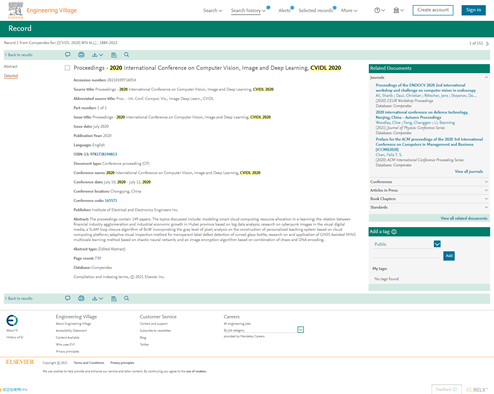
CVIDL 2021 has been retrieved by EI Compendex
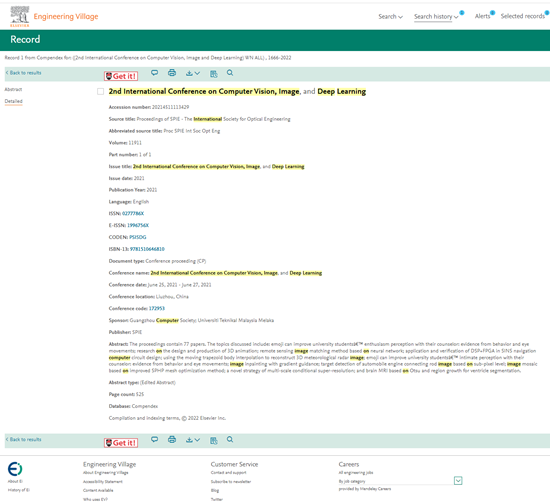
Publication
Papers
submitted to CVIDL2022 will be reviewed by technical committees of
the conference. All accepted full papers will be published by Conference Publishing
Services and will be submited to EI Compendex,
Scopus for indexing.
Note: All submitted articles should report
original, previously unpublished research results, experimental or theoretical.
Articles submitted to the conference should meet these criteria and must not be
under consideration for publication elsewhere. We firmly believe that ethical
conduct is the most essential virtual of any academic. Hence any act of
plagiarism is a totally unacceptable academic misconduct and cannot be tolerated.
Submission Methods
1.The submitted papers must not be under consideration elsewhere.
2.Please send the full paper(word+pdf) to SUBMISSION SYSTEM
3.Please submit the full paper, if presentation and publication are both
needed.
4.Please submit the abstract only, if you just want to make presentations.
5.Templates Downlow:
https://www.ais.cn/attendees/material/QU3QJF
Should you have
any questions, or you need any materials in English, please contact us at iccvidl@163.com
Registration
For the
publication on CVIDL 2022 conference proceedings:
Item | Registration fee (By RMB) | Registration fee (By US
Dollar) |
Regular Registration for Paper | 3600RMB/per paper (4 pages) | 550 USD/per paper (4 pages) |
Submission in Group (≥ 3 papers) or Author (IEEE Members or
Committees) | 3300RMB/per paper (4 pages) | 500 USD/ per paper (4
pages) |
Extra Pages (Begin at Page 5) | 400RMB/per extra page | 60 USD/ per extra page |
Attendees without Submission | 1500RMB/per person | 270 USD / per person |
Program
The following information about the schedule is for your reference:
Schedule | ||
May 20th (Friday) | 09: 00-18: 00 | Registration |
May 21st (Saturday) | 09:00-10:00 | Opening Ceremony (opening ceremony, awarding ceremony) |
10:00-12:00 | Summit Forum | |
12: 00-14: 00 | Lunch | |
14: 00-18: 00 | Domain Specific Conferences | |
May 22nd (Sunday) | 09: 00-18: 00 | One-day Tour in Changchun (Guests) |
*A more detailed programme will be determined one
month before the conference. Actual arrangements may be a little different from
the table above because of the number of participants.
CONTACT US
Conference Secretary: Haley
Chen
E-mail: iccvidl@163.com
Tel: +86-13922151734 (Wechat)
WhatsApp: +86-15112064796
QQ: 766847024




